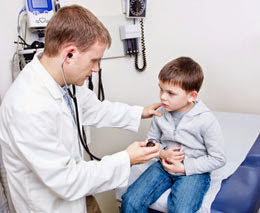Gastroenteritis virus, also known as stomach flu is a common stomach and intestines infection. It’s the second most common disease met in American family and causes about 50,000 hospitalizations per year. The virus can be transferred from food of infected person and spread from one person to another through plate, food, and water which made this virus highly spread and disease can be happened if you lazy to wash your hand or do sterilization in Public facility. Stomach flu symptoms commonly found in school, hospital, long term treatment facility, jails, dormitory, and sailor ship.
Virus which caused stomach flu symptoms are rotavirus, Norovirus, adenovirus, saporvirus and astrovirus. Rotavirus is virus which mostly involved in this disease. Gastroenteritis caused endemic in babies and pupils. Norovirus (Norwalkvirus) causes 90% of Gastroenteritis disease. It’s not true about influenza virus implication related with this infection.
Stomach Flu signed
This Gastroenteritis virus is signed by intense muscle aches, cramps, and fever before nausea, pain in stomach, vomit, and/or diarrhea. Vomit and diarrhea are the most common symptom met. While nausea and stomachache also followed by vomit and diarrhea. It sometimes causes people feel so exhausted and dry because energy in our body involved in effort to clean our body from virus. Person who suffered this can also lose their body fluid because of vomit and diarrhea. The symptoms started one or two days after got infected and the last 1-10 days, depended on virus involved.
Gastroenteritis virus treatment included takes a rest and drink analgesics-hydration. Tylenol can also be used to treated fever and muscle clamps by add some water or electrolyte rehydration solution oral drink (glucose and electrolyte) are important to avoid dehydration when replacing fluids, ready to change volume and electrolyte such as sodium, chloride, hydrogen and potassium. Water as hydration helps to replace volume, but if it is too much giving without electrolyte changing which the important ion concentrate would be decreasing and metabolism / electrolyte would cause imbalance in our body. Dehydration should be avoided. Electrolyte drink will be so important to protect against hyponatremia. Sports drink would fill this requirement.
Someone has to drink enough fluid to keep them save from dehydration. Proper hydration is important for younger (baby), old, weak and immunocompromised. Their body is in pressure and stomach flu can influence their body. They should recover their body by water because vomit and diarrhea could drain their body.
If dehydration happened, normal balance body fluid would be disturbed and has potential to abnormal electrolyte (sodium, potassium, hydrogen, bicarbonat, and chloride) can be happened. Abnormal electrolyte could influence nerves, cardiovascular, system related with lungs, kidney, etc. Dehydration can be seen from dry mouth, defecate, which would let your child to distribution such disease.
Although someone may get tempted to use anti-diarrhea (imodium) and anti-vomit (phenergan) medicine, this medicine type is not suggested along this time. It would be better to let body’s defense mechanism for defense function.
This Gastroenteritis virus can be stopped by washing your hand after eating and using bathroom and also contact with infected food. Balanced diet and taking supplement which is able to raise body immunity can also prevent Gastroenteritis virus.
The disease which has medical name viral gastroenteritis could attack your child when he/she consume contaminated food or drink. Stomach flu will make your children vomit and diarrhea.
If your child get infected with stomach flu, don’t give him/her diarrhea medicine except your doctor suggest so, because diarrhea medicine will cause children harder to elminiate the virus causes. In addition of diarrhea medicine, milk processing products can also be used for stomach flu sufferer. Keep your children so they won’t get dehydration.






















